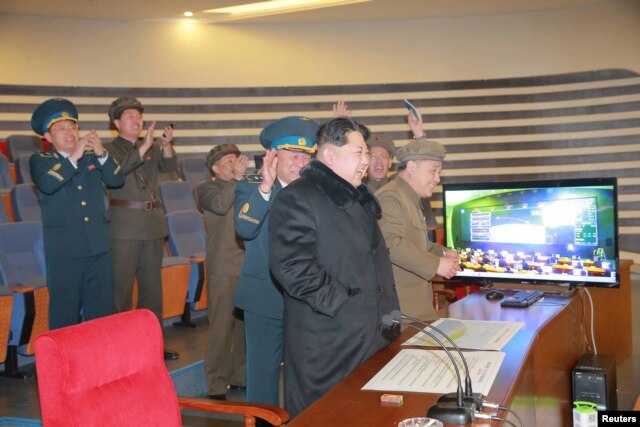Obama-ASEAN Talks Center On Peace, Security, Prosperity

RANCHO MIRAGE, CALIF.—Long-term peace, security and prosperity for Southeast Asia are the goals U.S. President Barack Obama and the 10 members of the Association of Southeast Asian Nations are seeking to ensure during a second day of talks in California.Obama and ASEAN leaders focused on developing innovation and entrepreneurship in southeast Asia during the first day of the two-day summit Monday.
The talks are taking place at the historic Sunnylands retreat, an informal setting the White House says offers a relaxed atmosphere and opportunity for leaders speak more “candidly.”
At the opening of the summit, Obama said ASEAN is “central” to peace and prosperity in southeast Asia and an important forum where “international rules and norms, including freedom of navigation, are upheld and where disputes are resolved through peaceful, legal means.”
Obama is seeking to develop a leadership role with ASEAN, which the White House sees key to the U.S. rebalance to the Asia Pacific. The strategic shift toward the region is critical to America’s further security and economic prosperity and a vital counterbalance to China’s influence, the White House has said.
The ASEAN nations include Indonesia, Malaysia, the Philippines, Singapore, Thailand, Brunei, Vietnam, Laos, Myanmar and Cambodia. The dynamic and diverse region is experiencing robust growth and rising tensions, potentially affecting the global economy and security.
Wide ranging agenda
Talks are focused on increasing cooperation on trade and commerce, the implementation of the Trans-Pacific Partnership, violent extremism, human rights, the environment, human trafficking and security, including maritime disputes in the South China Sea. China’s increasing activities in its contested waters has been a key topic at summit.
Obama is restating U.S. opposition to China’s “militarization” of disputed areas and calling for claimants to lessen tensions across the region, according to the White House.
It is a sensitive issue for ASEAN countries, some of whom are claimants in the dispute. While members welcome U.S. engagement, they are also uneasy about tensions between Washington and Beijing.
The White House has said the United States will continue recent freedom of navigation operations in the region.
“We fully support freedom of navigation and we will stand by our partners,” said National Security Advisor Susan Rice said Monday.
Beijing says it has long had a rightful claim to the disputed territories.
FILE – North Korean leader Kim Jong Un reacts as he watches a long range rocket launch in this undated photo released by North Korea’s Korean Central News Agency (KCNA) in Pyongyang, Feb. 7, 2016.
North Korea
The U.S. and ASEAN leaders are also addressing what role China can play in pressuring North Korea to end “provocative” actions, include Pyongyang’s recent rocket launch.
While China and the U.S. have disagreed on North Korea, the United States sees a common interest with China in ensuring the denuclearization of the Korean Peninsula.
Obama said Monday, in the last seven years ASEAN has become “the region’s leading forum for addressing political and security challenges” adding “our sustained engagement is delivering concrete results that benefit all of us.”
Young, rich region
The 10 ASEAN members comprise the third-largest economy in Asia, and the seventh-largest in the world, with a combined GDP of $2.4 trillion. More than 65 percent of its 632 million people are younger than the age of 35.
Trade between the United States and ASEAN countries has increased by 55 percent in seven years, according to the White House.
Southeast Asia is now America’s fourth largest goods trading partner, said the president, including U.S. exports that sustain more than 500,000 U.S. jobs. And he credited investment by U.S. companies in ASEAN for the region’s growing middle class.
Human Rights
Rice acknowledged some ASEAN nations “have a long way to go” on human rights issues, but she “strenuously” disputed claims the United States is “legitimizing” the behavior of governments with poor records.
«We take every opportunity to talk on human rights,” she said.
Obama told ASEAN leaders on Monday, “together, we can continue to support the aspirations and dignity of our citizens,” and said the recent election in Myanmar “gives hope for a nation that is inclusive, united, peaceful and democratic.”



